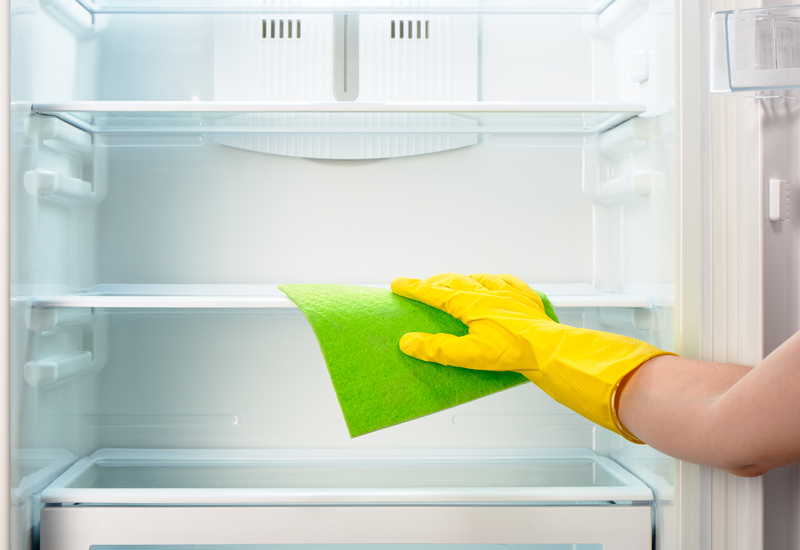Simple Methods for Washing Velvet Curtains Without Causing Fading
Posted on 02/06/2025
Simple Methods for Washing Velvet Curtains Without Causing Fading
Velvet curtains add a luxurious and elegant touch to any space. However, their rich colors and plush textures make them seem daunting to maintain. The top concern many have is fading--nobody wants their beautiful window treatments to lose their vibrancy. With the right techniques and simple steps, washing velvet curtains without causing fading is absolutely possible. In this comprehensive guide, we'll reveal expert tips and practical methods to clean your velvet drapes safely, ensuring they remain bold and stunning for years to come.

Why Velvet Curtains Fade and How to Prevent It
Fading is a common issue with velvet drapery. Velvet, whether made of natural fibers like cotton, silk, or synthetic options such as polyester, is sensitive to water, harsh chemicals, sunlight, and excessive friction. These factors can strip dye from the fabric, resulting in a dull or washed-out appearance.
- Sunlight Exposure: Prolonged exposure causes dyes to break down, leading to fading.
- Improper Washing: Too much water, strong detergents, or aggressive rubbing causes color loss.
- Chemical Cleaners: Certain cleaning products may react with the fabric and bleach the dye.
Preventing velvet curtain fade starts with gentle handling and cleaning. Below, you'll find simple, proven methods for washing velvet curtains without color loss or damage.
Pre-Cleaning Steps: Preparing Velvet Curtains for Washing
Before you jump into cleaning, preparation is key. Follow these essential steps to safely start the process:
- Dust and Shake - Remove your velvet curtains from the rod and give them a good shake outside, or use a gentle vacuum nozzle to remove dust and debris. This prevents grime from embedding further during washing.
- Check Manufacturer's Label - Always review the care label for fabric-specific recommendations. Some velvet, especially silk blends, may be dry clean only.
- Spot Test - In an inconspicuous area, test your cleaning solution to check for colorfastness. Dip a soft cloth in the solution and dab gently--look for any dye transfer.
- Remove Hardware - Detach any hooks, rings, or decorative holders to prevent snagging.
Tip: If your velvet is antique, delicate, or valuable, consider professional cleaning to avoid any risk of fading or shrinkage.
Hand Washing Velvet Curtains: The Safest Approach
For most types of velvet, hand washing is the safest, least invasive method. Here's a step-by-step approach for cleaning velvet drapes without causing fading:
Step 1: Use Lukewarm Water
Fill a clean tub, basin, or sink with lukewarm water. Avoid hot water, which can loosen dyes and encourage fading.
Step 2: Select a Gentle Detergent
Choose a mild liquid detergent that is free from bleach, optical brighteners, or strong fragrances. Woolite or detergents designed for delicates are great options.
Step 3: Submerge and Soak Gently
- Immerse the curtain in the water, supporting the fabric to avoid stretching.
- Do not twist, scrub, or wring; this can crush velvet fibers and break down dye bonds.
- Gently swish the curtain through the solution with both hands.
- Let soak for 5-10 minutes.
Step 4: Rinse with Care
Drain the soapy water and refill the tub with clean, cool water. Swish the curtain gently until all detergent is rinsed away. Change the water as needed to ensure thorough rinsing.
Step 5: Remove Excess Water
Lay the curtain on a thick towel. Roll up both together to blot out moisture--never wring velvet as twisting can damage the nap and cause fading.
Step 6: Dry Flat and Away from Sunlight
Lay the curtain on a dry towel on a flat surface. Shape it back to its original form. Avoid direct sunlight or heat, as this can fade and warp the material. Allow velvet to air dry completely.
Key Point: Always let velvet air dry. Avoid using a tumble dryer--it can crush the nap and amplify color loss.
Machine Washing Velvet Curtains: When and How
Some modern synthetic velvets--such as 100% polyester--may be machine washable. However, always check the manufacturer's advice before proceeding. Washing velvet curtains in a washing machine requires special precautions to avoid fading and fabric damage.
How to Machine Wash Velvet Curtains
- Use a Mesh Garment Bag: Place velvet panels inside out in a mesh laundry bag for extra protection.
- Choose the Delicate Cycle: Always select the 'delicate' or 'hand wash' cycle with cold water only.
- Add a Mild Detergent: Use a gentle, color-safe detergent formulated for delicate fabrics.
- Skip Heavy Spin: Set the machine to the lowest spin setting to avoid excessive agitation.
- Flat Dry: Once washed, lay the curtain flat on a towel and let it air dry away from sunlight.
*Note: Even when machine washing is permitted, hand washing is generally safer for preserving velvet's color and texture.
Spot Cleaning Velvet Curtains to Prevent Fading
If your velvet curtains are only lightly soiled--such as a spill, stain, or dust accumulation--full water immersion isn't always necessary. Spot cleaning is a quick method to maintain your curtain's rich color without risking overall fading.
Best Practices for Spot Cleaning Velvet
- Mix a few drops of mild detergent with cool water, creating a light sudsy solution.
- Dip a clean, white sponge or microfiber cloth into the mixture.
- Gently blot (do not rub) the stained spot, applying light pressure.
- Have another clean damp cloth on hand to blot and remove any soap residue.
- Blot with a dry towel and let the area air dry away from sunlight or heat sources.
Avoid over-wetting when spot cleaning to prevent water spots and streaks. For oil-based stains, you may use a small amount of rubbing alcohol applied with a cotton swab, but always patch test first.
Refreshing Velvet Curtains Between Deep Cleans
You can prolong the time between washes by regularly refreshing your velvet curtains using the following methods:
- Vacuum Regularly: Use a vacuum cleaner with a soft brush attachment to gently lift away dust from the nap. Do this once or twice a month.
- Shake and Air: Take your curtains down and shake them outdoors to eliminate embedded dust.
- Steam Cleaning: Use a handheld garment steamer (not an iron) held a few inches from the fabric to remove wrinkles and freshen the nap. Make careful, slow passes--steam can help revive velvet's texture.
- Lint Roller: A lint roller can pick up surface lint and pet hair without damaging fibers.
These quick procedures help maintain the beauty of velvet drapery while reducing the need for frequent water-based cleaning, thus minimizing the risk of fading.
Do's and Don'ts for Washing Velvet Curtains
- Do spot test any cleaning solution in an inconspicuous spot before using on the whole curtain.
- Do use cold or lukewarm water--never hot--when washing velvet.
- Do use only gentle, dye-free detergents designed for delicate fabrics.
- Do lay curtains flat or hang them to dry in shade, away from direct heat or sunlight.
- Don't scrub, twist, or wring out velvet curtains.
- Don't use bleach, strong chemicals, or regular laundry detergents--these can trigger immediate color fading.
- Don't tumble dry velvet drapes; always opt for air drying.
- Don't iron velvet directly--if needed, use a steamer set at low temperature.
Tips for Maintaining Vibrant Velvet Curtains
Keeping velvet curtains from fading relies on regular care and mindful maintenance. Consider the following expert tips:
- Rotate Curtains: Periodically move curtains around the room so any fading from indirect sunlight is even.
- Install UV-Blocking Sheers: Hang light, UV-protective sheers behind velvet curtains to reduce sun exposure.
- Avoid Smoking Indoors: Cigarette smoke can cling to fabric and hasten discoloration.
- Maintain Proper Humidity: Too much moisture in the room can lead to mildew or watermarks, damaging color and texture.
By following these tips, your luxury velvet drapes will remain as vibrant and plush as the day you bought them.
When to Call the Professionals
Some situations call for expert intervention. If you have antique, embroidered, or silk velvet curtains, or if there is heavy staining, professional dry cleaning is your safest bet. Professional cleaners have specialized solvents and equipment that clean velvet drapery thoroughly without risking color bleeding, shrinking, or nap flattening.
Ask your cleaner about their experience with velvet. Request spot testing and discuss any past damage or fading. This ensures your investment is safe and stunning after each clean.

Frequently Asked Questions About Washing Velvet Curtains
Can all velvet curtains be washed at home?
No. Many modern synthetic blends are washable at home, but silk, rayon, or antique velvets may require dry cleaning. Always check the label before deciding how to proceed.
Will hand washing prevent all fading?
Hand washing greatly reduces the risk of fading, but repeated washing and exposure to moisture can still eventually dull colors. Limit washing to when it's truly necessary.
Can I remove a deep stain from velvet without losing color?
Deep stains can be challenging on velvet. Blot spills immediately, and for set-in stains, consult a specialist cleaner to avoid permanent color loss from over-scrubbing or harsh chemicals.
How often should velvet curtains be washed?
Unless visibly soiled, velvet curtains only need a deep wash once every 1-2 years. Regular dusting and occasional spot cleaning suffice for routine care.
Conclusion: Keep Your Velvet Curtains Gorgeous, Not Faded
Maintaining the bold color and luxurious feel of velvet curtains may seem intimidating, but it's completely manageable with simple, gentle cleaning techniques. Remember to:
- Hand wash or spot clean with mild detergents
- Use cold to lukewarm water
- Air dry flat and away from sunlight
- Vacuum and steam regularly for upkeep
Above all, always read care labels and treat velvet with patience and care. By using these simple methods for washing velvet curtains without causing fading, you'll ensure your drapes continue to add style and sophistication to your home for years to come.
Latest Posts
Simple Methods for Washing Velvet Curtains Without Causing Fading
Wise Property Investments in Catford






